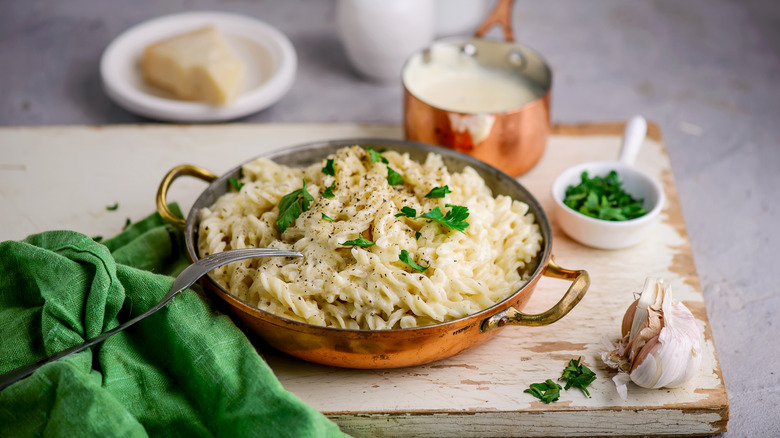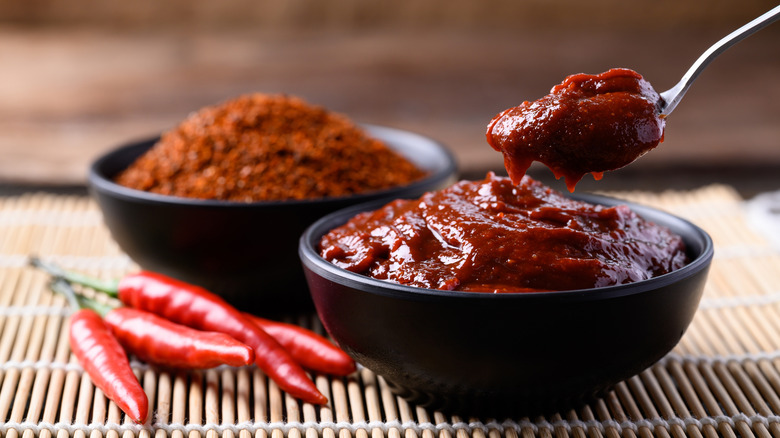The Spicy Korean Ingredient You Should Add To Alfredo Pasta
If you're someone who thinks pasta with Alfredo sauce can't get any better, you might want to reconsider. Gochujang, a fermented Korean red chili paste, is here to spice up your pasta game. Unlike your typical Alfredo, the addition of gochujang creates a balance of heat, richness, and creaminess, elevating the entree to a whole new level. Gochujang on its own delivers a combination of flavors like savory, smoky, and spicy, with a touch of sweetness and an undertone of umami. While the heat level can vary among brands, it generally ranges from medium to very hot.
The key to this dish lies not only in the gochujang sauce, but also in its preparation. While cooking your pasta, saute two to four tablespoons of gochujang with garlic in a skillet to deepen its flavor. Then, add heavy cream and parmesan, simmering until the sauce thickens. The gochujang's profile of savory, smoky, and spicy flavors pairs well with the creamy, cheesy notes of the Alfredo sauce, creating a balanced dish. If you don't have Alfredo sauce on hand, melt some butter, saute garlic, and incorporate gochujang, heavy cream, and parmesan cheese to create a creamy, spicy alternative.
Once the sauce is ready, serve it over the pasta for an easy, flavorful meal where the sauce truly shines. If you're looking to add protein, it also pairs particularly well with seared chicken, a perfectly cooked steak, or blackened shrimp. For an ultra-hydrating option, try serving it over raw zucchini noodles for a fresh twist.
Gochujang sauce is not just for Alfredo pasta
Why stop at Alfredo? This creamy classic is just one example of how gochujang can enhance pasta dishes. For another option, try whipping up some penne alla vodka with a kick. To take either the Alfredo or vodka sauce dishes to the next level, throw in mushrooms and shallots to add even more complex and umami flavors.
You can also mix gochujang into tomato-based sauces to create a subtle yet piquant finish. The heat from the gochujang blends well with the sweet, earthy undertones of tomatoes in dishes like spaghetti with marinara. Or, make a spicy dish even hotter by adding gochujang to rigatoni arrabbiata. If you're looking to impress a certain someone, consider incorporating gochujang into a revamped Marry Me Chicken recipe.
The condiment's role can stretch across many cuisines, and its zesty nature allows cooks to craft dishes for many different palates. Gochujang can also be used in various ways to enhance meals, including marinades, soup broths, or even desserts — try stirring some into your next caramel sauce for a spicy kick.


